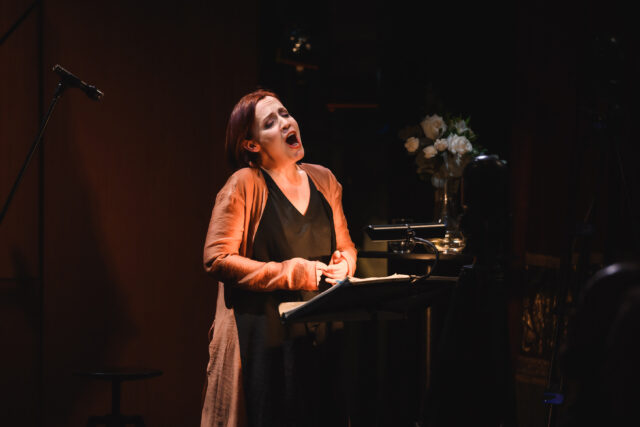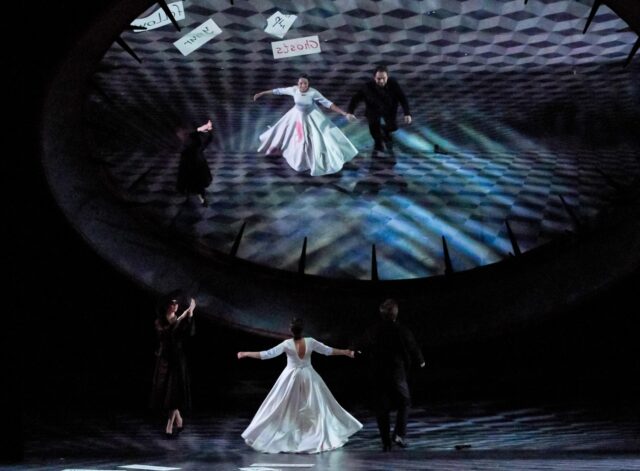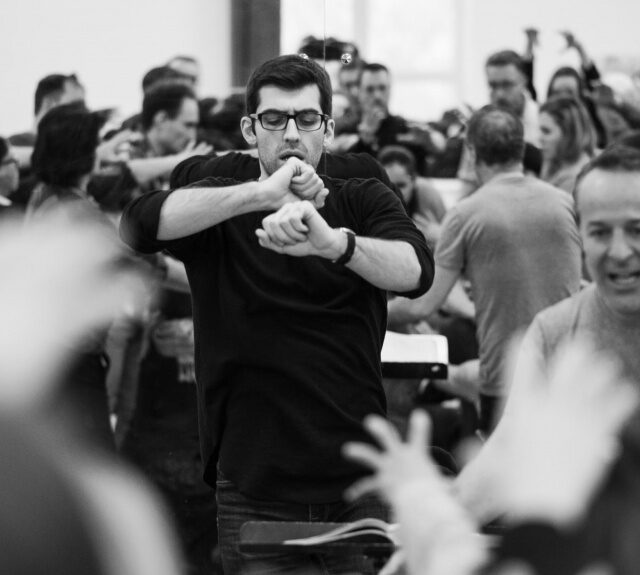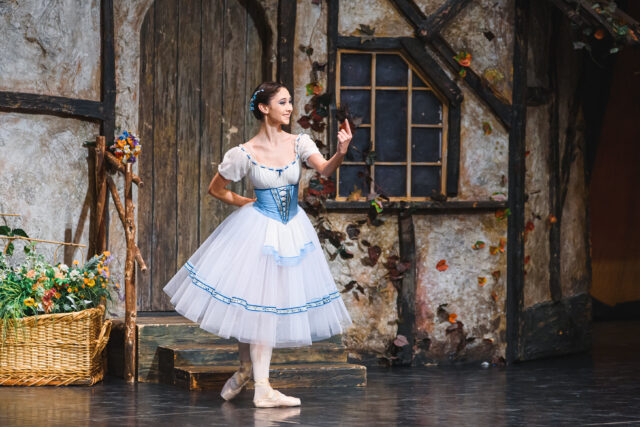Eighteen months ago, I discovered someone who changed my life forever.
His name is Teodor Currentzis. He’s a conductor who has recorded three operas for Sony music that are the single greatest albums that I have ever heard. And I don’t say that lightly.
The problem is, they’re opera. I know. The art form that’s apparently been dying for decades and that has a reputation for snobbishness, inaccessibility and general wankiness. Truth be told, I have always loathed it — but stay with me. These three are by Mozart, which helps. Opera’s biggest deterrent for me is Wagner. Chubby women shrieking at you in German for six hours simply cannot be described as entertainment — unless you like being bound, gagged and whipped in basement flats in Mayfair.
But Mozart is a different kettle of musical fish altogether. The guy, dead at 35, composed music that came straight from God’s mouth. And his three greatest operas are The Marriage of Figaro (Le Nozze di Figaro), Così fan Tutte and Don Giovanni. Operas with ridiculous plots and even more intricate and ludicrous subplots. But underneath the farcical stories are important, powerful messages about the nature of love, humanity and our capacity for forgiveness. And Mozart sets these stories to the most profound music imaginable.
The problem with classical music is that it is only ever as good as the performance you are hearing or witnessing, which is why interpreters such as Gould, Karajan, Horowitz and Callas are so immortal. They were capable of reimagining what was set down on paper hundreds of years earlier and offering it to audiences in the present day in a way that shook, and still shakes, the foundations of our reality.
So along comes a young Greek conductor called Teodor Currentzis. He is the conducting equivalent of Glenn Gould morphed with Kurt Cobain. Gould said there is no point performing something that’s been performed a thousand times before unless you do it differently. And Currentzis, who has a work ethic and attention to detail that would have made Steve Jobs look like an unemployed bum, goes way, way beyond that.
He formed his own orchestra, Musica Aeterna, hand-picking the very best musicians he could find — largely from Russia, where they have quite the selection. He somehow convinced Sony to inject an obscene amount of money, and he set to work producing and recreating definitive performances of Mozart’s three greatest operas. He records in Perm, a city in the middle of Russia whose temperature redefines cold. He, his orchestra and singers, along with producers, sound engineers and technicians, spend weeks in what can only be described as a classical music lock-in — they live, eat and breathe there, and the majority of their waking moments are spent creating music. Hundreds of hours of takes are recorded, with Currentzis pushing everyone involved beyond the limits of what most would consider possible. He chooses speeds that are, to many, unplayable. Vocal techniques that are not taught in any schools. Interpretations that make most music critics and regular opera audiences question everything they thought they knew. His conception of these works is so grand, so life-affirming and life-changing, so far beyond anything that has come before it that it has, for me, redefined music itself. This is classical music breaking the four-minute mile.
I found his albums by dumb luck and have spent hundreds of hours listening to them. They accompany me everywhere. There are no other recordings where I know, just absolutely know, that this is how the composer himself would have heard it while he was writing it down. It’s as if Currentzis has found a wormhole and tunnelled back in time into Mozart’s mind. Everything about his approach is groundbreaking. The attack of the strings, the unbelievable presence of the sound — you feel as if you’re sitting right in the middle of the orchestra as melody after melody sweeps through your ears, the quality of the singing, the sheer, visceral, driving energy, the humour, pathos, romance, verve, face-punching force of it all is overwhelming.
I don’t think opera really deserves its rep. One of my favourite stories about Così is that the librettist, Lorenzo da Ponte, had a mistress for whom he wrote one of the main roles. Mozart loathed her. And he noticed that when she sang high notes she would lift her face to the sky and when she sang low notes she would drop her chin to her chest. And so while he was writing her famous, showcase aria, Come Scoglio (Like a Rock — she’s declaring that she’s going to be completely faithful to her fiance; a blatant lie as it turns out), he fills the whole thing with jumps from high to low and low to high, in order, to quote Mozart, «to make her head bob up and down like a chicken».
I think of Mozart conducting this, watching the soprano nodding her head up and down and giggling to himself. Most amazing is the fact that Mozart wrote one of the greatest and most beautiful operatic arias ever, while simultaneously taking the piss out of a woman he detested.
The Marriage of Figaro story, with its infidelity, mistaken identity, cross-dressing — the whole shebang– is as idiotic as Così’s. But in both there is a deeper reality about love, and being human. Figaro’s ending (in Currentzis’s hands) makes me sob every time. In fact many times I just can’t listen to the last few tracks because I genuinely think I’ll throw myself under a train.
The cheating Count, who really doesn’t deserve the «o» in his title, has really, really screwed up with his wife. And he’s been caught red-handed. He drops to his knees and sings the most beautiful, pleading, desperate aria, Contessa perdono! – «Countess, forgive me!». And the Countess, more kind than he (Più docile io sono – «I am more mild»), forgives her husband. Just like that. In one musical phrase comes a hammer-blow definition of true love that just about cleaves your heart in two. Love does indeed conquer all.
I don’t trust anyone or anything. I’m the anti-trust guy. But Currentzis, I trust. His albums have become one of my best friends. They offer me everything I’ve ever wanted — a deeper understanding of myself, an unimaginable beauty and a window into another world that is better, safer, more profound and filled with more meaning than the one I currently inhabit. He keeps me company while on planes, on trains, in hotels, backstage, while I make dinner and during the lonely post-divorce nights.
I managed to wrangle a pre-release copy of Don Giovanni. It was meant to come out a year ago, but having recorded the whole thing and with it ready to go, Currentzis felt he could do better. And somehow he managed to convinced Sony to finance rerecording the entire opera.
In Currentzis’s hands, the orchestra makes sounds that I’ve never heard before and his singers are transported into world-class stars to rival Callas and Carreras. There’s a moment early on in the opera — Giovanni’s Viva la libertà — that is in many ways the most important moment in all of art. It’s the fault line between classicism and romanticism, and Currentzis is one of the only musicians capable of fully understanding and transmitting the meaning of «libertà».
Mozart’s opera is about a young, arrogant, nobleman who shags his way around town, abuses and pisses off everyone else until he encounters something he cannot kill, beat up, dodge, or outwit — a giant statue called the Commendatore, the murdered father of a woman Don Giovanni tried to rape. Giovanni killed him in a duel following the attack. He then makes a move on another woman he passes in the street after the attack, and goes on to try to seduce a young bride on her wedding day. His servant sings with glee that he’s notched up 1,003 lovers which, pre-Tinder, is quite something.
By the end, we are almost in Hitchcock territory. Mozart uses trombones to depict the statue, which would’ve made his audience shit themselves because in his day no one used trombones other than in church. It’s terrifying. It’s full of dissonant sevenths and insane tension as the Don refuses to repent for his appalling life, despite the Commendatore’s ghost urging him to and giving him one last chance. But it’s too late. The Don is dragged down to hell. Da Ponte, who wrote the lyrics, gives the simple stage direction: «Fire on all sides; earthquake.» Which is kind of the master of understatement, and also perhaps a pretty decent description of how I feel about my life the majority of the time.
Unwilling to end it there, where perhaps it would be most natural, Mozart, with his giant heart, allows us to end the opera with a sense of joy, wonder and transformation as the remaining cast rejoice at Don Giovanni’s disappearance and the music moves into the major key with melody after melody pouring into us.
Perhaps this reads like a sycophantic love letter to Currentzis. And although in many ways it is that, it’s more an open thank you letter. Because within his recordings (and if opera really is not doable for you, listen to his version of Mozart’s Requiem or Tchaikovsky’s Violin Concerto or this Rameau track), there is an absolute meaning to life that has long eluded me.
The other night I met a brilliant young theatre director and asked him if he’d been approached about doing opera. He told me he had just recently been asked but that he wouldn’t do it «because I really think opera is a dying art form». I’m going to send him these box sets because I know he’ll change his mind.



